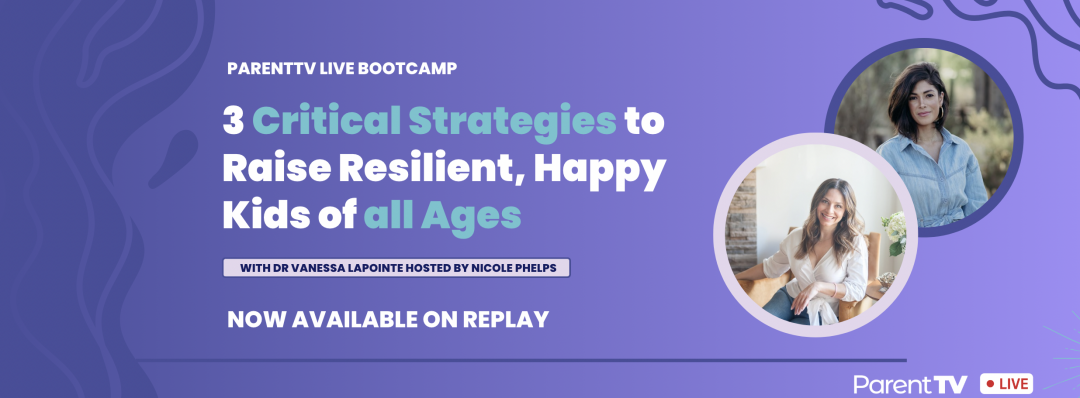What you Need to Know about Discipline Without Damage
Categories: General Parenting
In this blog post, we dive deep into the topic of discipline without damage exploring the main subjects covered in week 2 of Dr Vanessa Lapointe’s bootcamp video on 3 Critical Strategies to Raise Happy and Resilient Kids and provide concise but detailed information on how to discipline children without causing harm. So, let’s get started!
Understanding Discipline Without Damage
Discipline without damage is all about focusing on shining the spotlight on our behavior rather than that of our children. It’s about understanding the antecedents, or what happens before the behavior occurs, and responding in ways that address the underlying needs of our children. This approach honors their developmental stage and attachment needs, ensuring that discipline is done with compassion and firm boundaries. By focusing on the antecedents and understanding the root causes of behavior, we can provide a nurturing and supportive environment for our children to grow and learn.
Dealing with Challenging Moments
In moments when we need to discipline our children, it’s important to understand where the feeling of being paralyzed comes from. With so much information and advice available, it’s easy to feel overwhelmed. The key is to trust your own instincts and knowledge about your child. Press out the noise of the outside world and listen to your inner voice. What feels right to you? What aligns with your values and the needs of your child? By tuning into your inner wisdom, you can respond in a way that is compassionate, firm, and effective.
Discipline and Tantrums
Tantrums are a natural part of child development, and they don’t require discipline in the traditional sense. Instead of trying to discipline a tantrum, it’s important to understand what is happening for the child in that moment. Tantrums are a way for children to express their frustration when things don’t go their way. By providing a safe and compassionate space for them to express their emotions, we can help them navigate through the tantrum and adapt to the situation. It’s about setting boundaries and guiding them towards more constructive ways of coping with their emotions.
Delayed Gratification and Money
Teaching children about delayed gratification and money is an important part of their development. Instead of using reward systems or external incentives, it’s better to focus on teaching them the value of money and the concept of saving. Give them an allowance and help them split it up into saving and spending categories. This way, they learn the importance of patience and making choices with their money. By directly experiencing the consequences of their financial decisions, they can develop a sense of responsibility and financial literacy.
Navigating Teenage Challenges
Parenting teenagers can be challenging, especially when it comes to setting boundaries around technology and social media. It’s important to establish clear rules and expectations about screen use and create technology-free spaces and times for connection. While it can be difficult to enforce these boundaries, especially when faced with resistance or pushback, it’s important to stay consistent and lead by example. Remember, you are still in charge as a parent, and it’s your responsibility to keep your child safe and guide them through the challenges of adolescence.
Dealing with Hurtful Interactions
When it comes to hurtful interactions between siblings, it’s important to address the behavior in a compassionate and firm manner. Start by understanding the underlying needs of the child who is exhibiting aggressive behavior and work towards fulfilling those needs in a positive way. Focus on connecting with your child and helping them understand the impact of their words and actions on others. Set clear boundaries and consequences for hurtful behavior, while also providing opportunities for healing and growth. It’s important to have open and honest conversations with your child, even when faced with resistance from your partner. Remember, you are the beacon of light for your children and can guide them towards healthier interactions.
To Watch the full bootcamp and for more insights and tips on discipline without damage click the image below.

